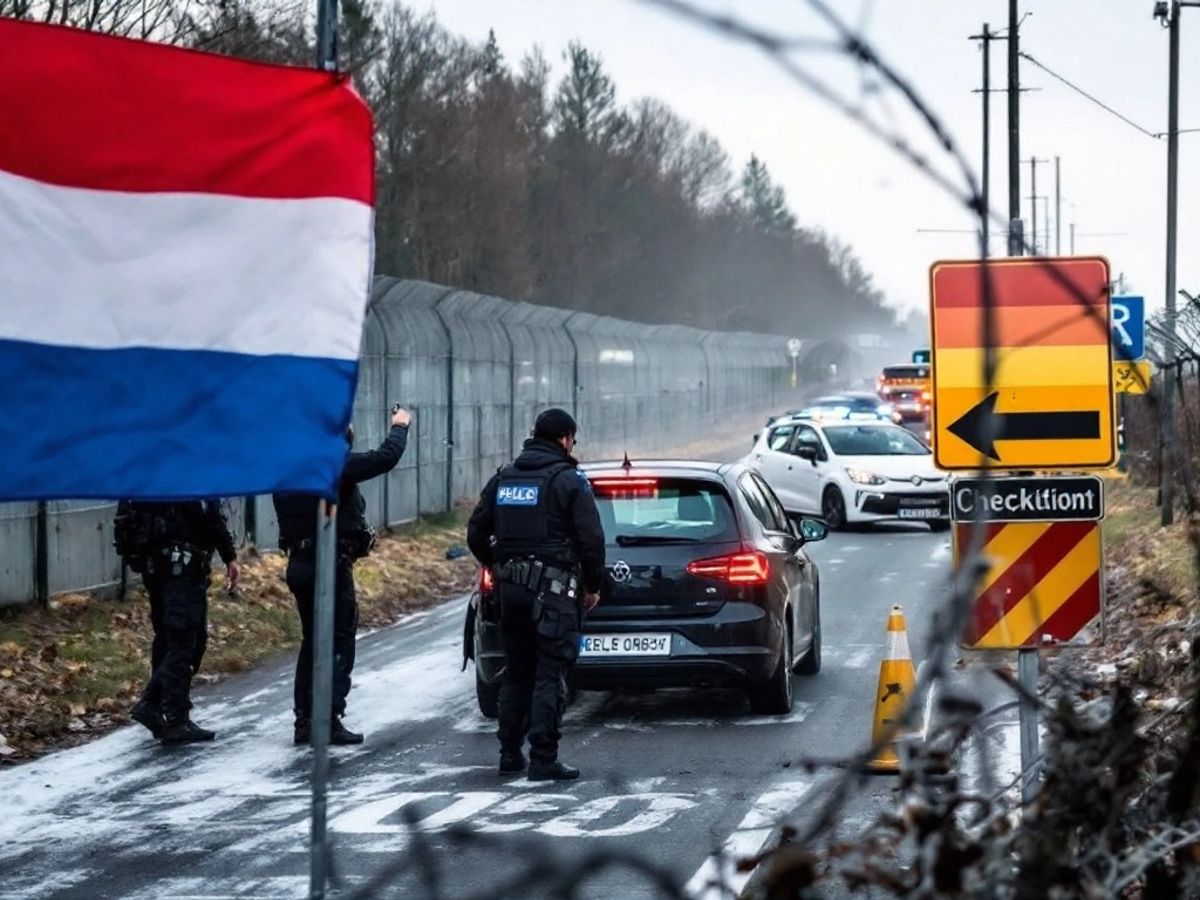Child Welfare
EU Tightens Borders: Netherlands Joins France and Germany in Migration Clampdown

The European Union is witnessing a significant tightening of border controls as the Netherlands becomes the latest country to announce new measures aimed at reducing immigration numbers. Following similar actions by France and Germany, these developments reflect a growing trend among EU nations to address migration concerns amid rising public pressure.
Key Takeaways
- The Netherlands will implement tougher border controls by the end of next month.
- France and Germany have already introduced similar measures to combat illegal immigration.
- The new policies include limiting asylum permits and restricting family reunification for asylum seekers.
Background
The recent announcement from the Netherlands comes as part of a broader clampdown on migration proposed by the right-wing coalition government, led by Geert Wilders’ Party for Freedom (PVV). This coalition has been under pressure to address public concerns regarding immigration, particularly in light of rising crime rates and security threats.
The new border checks in the Netherlands are expected to take effect at the end of November, as reported by Dutch broadcaster RTL. These measures were part of the coalition agreement reached in July, following Wilders’ electoral victory nearly a year ago.
Measures Being Introduced
The new measures in the Netherlands include:
- Limiting Asylum Permits: Asylum permits will be restricted to a maximum of three years.
- Family Reunification Restrictions: Asylum seekers will face limitations on their ability to reunite with family members.
These measures are designed to address what the government has termed a national asylum crisis, allowing them to bypass parliamentary approval for certain actions.
France and Germany’s Actions
France announced last week that it would increase border checks starting November 1, reinforcing controls at its borders with six neighbouring Schengen countries: Belgium, Germany, Italy, Luxembourg, Spain, and Switzerland. This move is set to last for at least six months, with the possibility of extension.
Germany had already suspended the freedom of movement within the Schengen zone in September, citing a surge in illegal immigration and security concerns. German Interior Minister Nancy Faeser stated that these measures would help identify and stop potential threats early.
Implications of the New Measures
The introduction of stricter border controls has raised concerns among EU partners. Austria, for instance, has expressed its refusal to accept migrants turned away at the German border. The European Commission has cautioned that such measures should only be implemented in exceptional circumstances.
In Germany, the reintroduction of border checks has already led to significant findings, with nearly 900 unauthorised entries detected within just five days. This has sparked a debate about the effectiveness of the EU’s external border controls and the necessity of reinstating internal checks.
Conclusion
As the Netherlands joins France and Germany in tightening border controls, the EU faces a complex challenge in balancing migration management with the principles of free movement. The ongoing situation highlights the growing tensions within the bloc regarding immigration policy and security, raising questions about the future of the Schengen Agreement and the EU’s approach to migration.
Sources
-

 Education7 days ago
Education7 days agoHow to Easily Access Your Courses: A Step-by-Step Guide to Coursera Login
-

 Cryptocurrency7 days ago
Cryptocurrency7 days agoWhich Crypto to Buy Today for Short-Term Gains: Your May 2025 Guide
-

 Gadgets & Electronics7 days ago
Gadgets & Electronics7 days agoComprehensive Acer Chromebook Laptop Reviews: Unveiling the Best Models of 2025
-

 Business7 days ago
Business7 days agoDiscover the Best Laptop for Working from Home in 2025: Top Picks and Reviews
-

 Cryptocurrency6 days ago
Cryptocurrency6 days agoBlockchain Beyond Cryptocurrency: 5 Game-Changing Applications You Should Know
-

 Space7 days ago
Space7 days agoExperience the Universe: Tune into NASA Live for Real-Time Space Exploration
-

 Education6 days ago
Education6 days agoUnlocking Knowledge: How the Udemy App Transforms Online Learning
-

 Health & Fitness7 days ago
Health & Fitness7 days agoThe Ultimate Guide to the Best Supplements for Anxiety Relief























